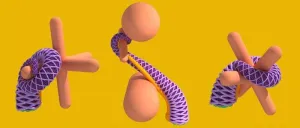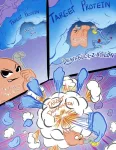(Press-News.org) LOS ANGELES — Alcohol use increased during the COVID-19 pandemic and remained elevated even after the pandemic ended, according to a large nationally representative Keck Medicine of USC study published today in the Annals of Internal Medicine.
From pre-pandemic (2018) to the height of the pandemic (2020), heavy alcohol use among Americans rose by 20%, and any alcohol use rose by 4%. In 2022, the increases were sustained.
The rise in drinking was seen across all age groups, genders, race, ethnicities and regions of the country, except for Native Americans and Asian Americans. Adults ages 40-49 had the highest increase in heavy alcohol use.
“These numbers reflect an alarming public health issue that could result in severe health consequences for far too many people,” said Brian P. Lee, MD, MAS, a hepatologist and liver transplant specialist with Keck Medicine of USC and principal investigator of the study. “Our results suggest men and women under 50 are at special risk.”
Excessive alcohol use is a leading preventable cause of illness and death in the United States, according to the Centers for Disease Control and Prevention. Half of all liver-related deaths are caused by alcohol, and alcohol-related cirrhosis is now the leading cause of liver transplants, according to Lee.
To reach their conclusions, researchers studied data from the National Health Interview Survey, one of the largest and most comprehensive health surveys in the country. The survey collected alcohol use information as well as demographic and socioeconomic data for more than 24,000 adults age 18 or older. They compared 2018 with 2020 alcohol use numbers, then 2018 with 2022.
While the U.S. Department of Health and Human Services announced the official end of the pandemic in May 2023, the study defined the year 2022 as post-pandemic, as behaviors were beginning to return to normal.
Adults were characterized as having any alcohol use or heavy alcohol use within one year of the survey, and researchers calculated the rate of both measures of alcohol use. Heavy drinking was defined as greater than or equal to five drinks a day or 15 drinks a week for men, and greater than or equal to four drinks a day or eight drinks a week for women.
The study did not analyze why there was an increase in alcohol consumption between 2018 to 2022, but Lee hypothesizes that pandemic stress may have caused drinking to become more normalized. He further speculates that the effects of the pandemic, including disruptions to school and work, may have driven the increases in alcohol use in adults ages 40-49.
Lee hopes the study will bring more awareness to the issue. “We encourage health care providers to offer more screenings for harmful drinking as well as interventions for at-risk populations,” he said.
Divya Ayyala-Somayajula, MD, from Thomas Jefferson University in Philadelphia, was lead author of the study.
Jennifer Dodge, MPH, an associate professor of research medicine and population and public health science at the Keck School of Medicine of USC, Adam Leventhal, PhD, professor of population and public health sciences at the Keck School and director of the USC Institute for Addiction Science, and Norah Terrault, MD, a Keck Medicine gastroenterologist and division chief of gastroenterology and liver diseases at the Keck School, were also study authors.
###
For more information about Keck Medicine of USC, please visit news.KeckMedicine.org.
END
Pandemic-era increase in alcohol use persists
Study finds that heavy drinking among adult Americans increased more than 20% during the peak of the COVID-19 pandemic and continued for the following two years
2024-11-11
ELSE PRESS RELEASES FROM THIS DATE:
A new milestone in the study of octopus arms
2024-11-11
Mechanical engineering PhD candidate Arman Tekinalp, fellow graduate student Seung Hyun Kim, Professor Prashant Mehta, and Associate Professor Mattia Gazzola, all from the Department of Mechanical Science and Engineering at the University of Illinois Urbana-Champaign, recently published in the Proceedings of the National Academy of Science (PNAS). Their interdisciplinary collaboration also included Assistant Professor Noel Naughton (formerly a Beckman fellow) from the Department of Mechanical Engineering at Virginia Tech alongside researchers from the Department of Molecular and Integrative Physiology at Illinois ...
Fighting microplastics for a cleaner future
2024-11-11
Microplastics, plastics smaller than 5 millimeters, are littered across the world, contributing to global warming, disrupting food chains, and harming ecosystems with toxic chemicals. This is why Dr. Manish Shetty is working to break down plastics before they can get into the environment.
Creating sustainable chemicals and developing better waste management will contribute to better sustainability. This research is part of figuring out how to make green hydrogen available for waste management using catalysts.
Shetty’s research uses solvents in low amounts that also act as hydrogen sources to break down a specific class of plastics called ...
Tumor suppressor forms gel-like assemblies to sacrifice cancer cells
2024-11-11
(MEMPHIS, Tenn. – November 11, 2024) There are processes in the human body that can suppress the growth and proliferation of cancer cells. These mechanisms, including those involving the tumor suppressor protein p53, are widely studied due to their critical role in disease. Through studies of proteins that regulate p53, scientists at St. Jude Children’s Research Hospital have uncoupled a previously unrecognized tumor suppression mechanism. Usually found at low levels in cells, the p14 Alternative Reading Frame protein (p14ARF) is expressed at higher levels under oncogenic stress and activates ...
New research uncovers how Barred Owls interact with urban areas and why it matters
2024-11-11
Baton Rouge, November 4, 2024 – Novel research just published in the American Ornithological Society journal, Ornithological Applications, has revealed noteworthy insights into how Barred Owls (Strix varia) interact with urban environments, with implications for both wildlife conservation and urban planning. This study, conducted by a team of biologists from Louisiana State University and other institutions, highlights the connection between owl habitat selection and an urban landscape, underscoring the ...
50 years of survey data confirm African elephant decline
2024-11-11
Habitat loss and poaching have driven dramatic declines in African elephants, but it is challenging to measure their numbers and monitor changes across the entire continent. A new study has analyzed 53 years of population survey data and found large-scale declines in most populations of both species of African elephants.
From 1964-2016, forest elephant populations decreased on average by 90%, and savanna elephant populations fell on average by 70%. In combination, populations declined by 77% on average. The study compiled survey data from 475 sites in 37 countries, making it the most comprehensive assessment of African elephants to date.
Declines ...
Swirling polar vortices likely exist on the Sun, new research finds
2024-11-11
EMBARGOED: Until 3 p.m. ET on Monday, Nov. 11, 2024
Contacts:
Laura Snider, NSF NCAR and UCAR Manager of Science Communications
lsnider@ucar.edu
303-827-1502
David Hosansky, NSF NCAR and UCAR Manager of Media Relations
hosansky@ucar.edu
720-470-2073
Like the Earth, the Sun likely has swirling polar vortices, according to new research led by the U.S. National Science Foundation National Center for Atmospheric Research (NSF NCAR). But unlike on Earth, the formation and evolution of these vortices ...
Protein degradation strategy offers new hope in cancer therapy
2024-11-11
RIVERSIDE, Calif. -- In drug discovery, targeted protein degradation is a method that selectively eliminates disease-causing proteins. A University of California, Riverside team of scientists has used a novel approach to identify protein degraders that target Pin1, a protein involved in pancreatic cancer development.
The team reports today in the Proceedings of the National Academy of Sciences that it has designed agents that not only bind tightly to Pin1 but are designed to cause its destabilization and cellular ...
Mental fatigue leads to loss of self-control by putting brain areas to sleep
2024-11-11
Prolonged mental fatigue can wear down brain areas crucial for the individual ability to self-control, and cause people to behave more aggressively.
In a new multidisciplinary study published in the PNAS, a group of researchers from neuroscience and economics at the IMT School of Advanced Studies Lucca links the debated concept of "ego depletion", that is to say the diminution of willpower caused by previous exploitation of it, to physical changes in the areas that govern executive functions in the brain. In particular, the ...
Was ‘Snowball Earth’ a global event? New study delivers best proof yet
2024-11-11
Geologists have uncovered strong evidence from Colorado that massive glaciers covered Earth down to the equator hundreds of millions of years ago, transforming the planet into an icicle floating in space.
The study, led by the University of Colorado Boulder, is a coup for proponents of a long-standing theory known as Snowball Earth. It posits that from about 720 to 635 million years ago, and for reasons that are still unclear, a runaway chain of events radically altered the planet’s climate. Temperatures plummeted, and ice sheets that may have been several miles thick crept over every inch of Earth’s surface.
“This study presents the first physical evidence ...
Scientists issue call to action underlining importance of microbial solutions to tackle climate crisis
2024-11-11
Ahead of COP29, Applied Microbiology International (AMI) has partnered with leading global scientific organisations to issue a unified call to action, spotlighting microbial solutions as pivotal in combating climate change.
In a strategic publication, released in multiple high-impact scientific journals at once, the joint paper advocates for the establishment of a global science-driven climate task force. This initiative aims to expedite the deployment of microbiome technologies, providing stakeholders worldwide with access to effective and immediate solutions.
Signatories of the paper, ‘Microbial solutions must be deployed against the climate catastrophe’ ...
LAST 30 PRESS RELEASES:
Tiny bubbles, big breakthrough: Cracking cancer’s “fortress”
A biological material that becomes stronger when wet could replace plastics
Glacial feast: Seals caught closer to glaciers had fuller stomachs
Get the picture? High-tech, low-cost lens focuses on global consumer markets
Antimicrobial resistance in foodborne bacteria remains a public health concern in Europe
Safer batteries for storing energy at massive scale
How can you rescue a “kidnapped” robot? A new AI system helps the robot regain its sense of location in dynamic, ever-changing environments
Brainwaves of mothers and children synchronize when playing together – even in an acquired language
A holiday to better recovery
Cal Poly’s fifth Climate Solutions Now conference to take place Feb. 23-27
Mask-wearing during COVID-19 linked to reduced air pollution–triggered heart attack risk in Japan
Achieving cross-coupling reactions of fatty amide reduction radicals via iridium-photorelay catalysis and other strategies
Shorter may be sweeter: Study finds 15-second health ads can curb junk food cravings
Family relationships identified in Stone Age graves on Gotland
Effectiveness of exercise to ease osteoarthritis symptoms likely minimal and transient
Cost of copper must rise double to meet basic copper needs
A gel for wounds that won’t heal
Iron, carbon, and the art of toxic cleanup
Organic soil amendments work together to help sandy soils hold water longer, study finds
Hidden carbon in mangrove soils may play a larger role in climate regulation than previously thought
Weight-loss wonder pills prompt scrutiny of key ingredient
Nonprofit leader Diane Dodge to receive 2026 Penn Nursing Renfield Foundation Award for Global Women’s Health
Maternal smoking during pregnancy may be linked to higher blood pressure in children, NIH study finds
New Lund model aims to shorten the path to life-saving cell and gene therapies
Researchers create ultra-stretchable, liquid-repellent materials via laser ablation
Combining AI with OCT shows potential for detecting lipid-rich plaques in coronary arteries
SeaCast revolutionizes Mediterranean Sea forecasting with AI-powered speed and accuracy
JMIR Publications’ JMIR Bioinformatics and Biotechnology invites submissions on Bridging Data, AI, and Innovation to Transform Health
Honey bees navigate more precisely than previously thought
Air pollution may directly contribute to Alzheimer’s disease
[Press-News.org] Pandemic-era increase in alcohol use persistsStudy finds that heavy drinking among adult Americans increased more than 20% during the peak of the COVID-19 pandemic and continued for the following two years







